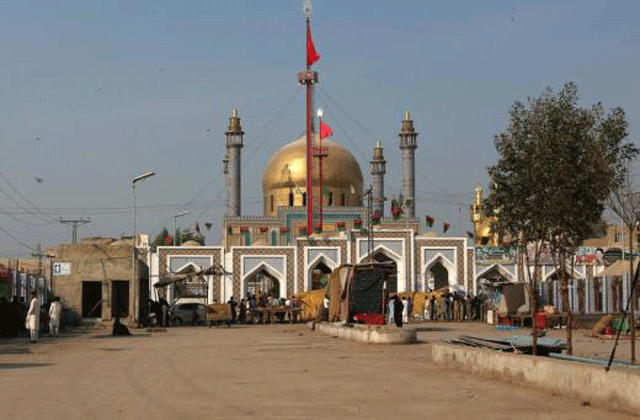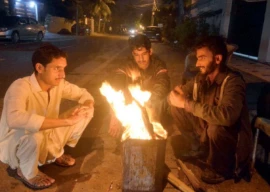
It said in an official response on Wednesday that after "exercising restraint" since the blast in Sehwan on February 16, “the ministry feels it is necessary to put the record straight”.
The ministry claimed that the Hyderabad Electric Supply Company (Hesco) had provided a dedicated line for Dargah Sehwan Sharif for many years. However, it added, the Dargah officials misused the line and offered to connect nearby shops and hotels.
Sehwan blast aftermath: Over 90 detained in search operations in twin cities
Later, the government of Sindh in 2011 also refused to pay the overdue amount, according to the water and power ministry.
“After high amounts accumulated and on detection of massive theft being allowed on the dedicated line, disconnection was carried out in 2015,” the statement explained, adding that it was "restored on the request of the provincial government” soon after.
The Dargah administration, in order to avoid paying its bills, shifted their load from the dedicated feeder to other feeders by installing ‘kundas’ – illegal connections – on those feeders.
The ministry adds that despite this major illegality, the Hesco management did not take any legal action out of respect for the Dargah premises.
“Load-shedding was routinely carried out on those feeders at 6 pm every day and the day of the [Sehwan shrine blast] was no exception,” said the ministry.
Social media questions PPP govt's inadequacy after Sehwan blast
Load-shedding has been a countrywide phenomenon since 2007, which has reduced from 12-15 hours per day in 2013 to considerably low levels nowadays, it said.
“Security-vulnerable places are covered by local authorities through UPS systems and standby generators,” added the ministry.
It is unbelievable, the ministry said, that an important venue such as the shrine of Sufi saint Lal Shahbaz Qalandar, where millions of rupees in donations are collected every day from devotees, would be devoid of this basic facility at the security gates, where a UPS could have been installed for a few thousand rupees.
The Ministry of Water and Power continued that even if there was no load-shedding issue, such security contingencies were needed to meet any unforeseen disruption of power.
It said, “It is expected that the concerned provincial authorities would fulfil their responsibilities by providing security contingencies at sensitive installations and would not try to hide behind lame excuses for their failures.”
At least 88 people were killed in a suicide blast at the Sehwan shrine last month. Security analysts believed that the bomber managed to enter the shrine due to poor security.




1725030039-0/Untitled-design-(2)1725030039-0-165x106.webp)
1732697578-0/Untitled-design-(5)1732697578-0-270x192.webp)











COMMENTS
Comments are moderated and generally will be posted if they are on-topic and not abusive.
For more information, please see our Comments FAQ